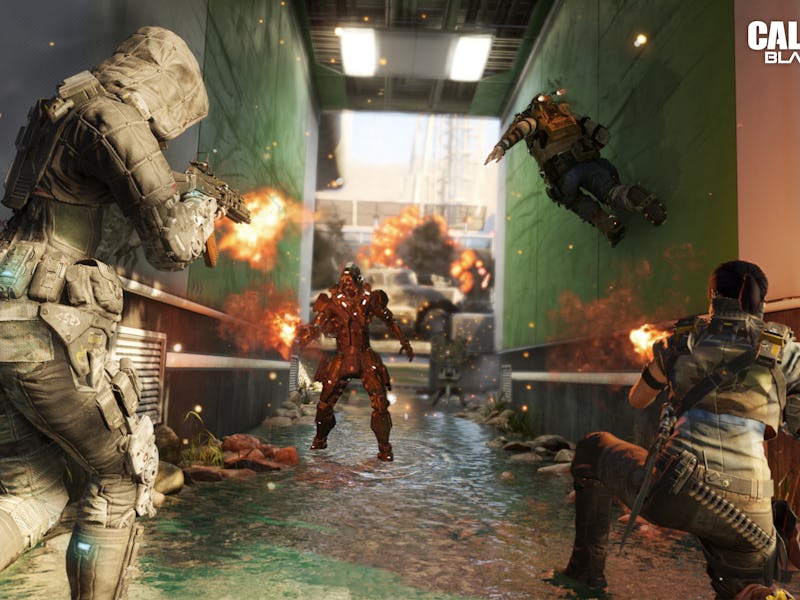'Call of Duty' Mastered the Hollywoodification of Video Games
The franchise first-person shooters are secretly cinematically brilliant.

Call of Duty games are your nephew’s or lazy roommate’s favorite shooters. They’re easy to comprehend — shoot things, a lot! — and they’re indistinguishable with each iteration. They’re a playground to simulate heroic power fantasies motivated by American jingoism and blind patriotism. They are dumb games played by foul-mouthed adolescent boys.
And they’re also secretly brilliant.
When you watch James Bond, Fast & Furious, or a Marvel movie, you quickly identify the great, big, grand setpieces. You remember them when the lights go on and you exit the theater. Video games have setpieces too, typically boss battles or some unconventional sequence that forces you to play the game differently. Many of these are memorable precisely because of their novelty, and their elegant design is something of an achievement. The boss fight against Mr. Freeze in Batman: Arkham City is an example of a great video game setpiece. Its novel approach in utilizing every known mechanic of Arkham City in a single room was rightfully praised.
But Call of Duty, which is strangely absent of traditional “boss battles”, has entire levels that function as their own setpieces, remembered by their setting and absurdity of the situation. A terrorist invasion? In suburban Virginia? Yup, that was a thing.
Michael Bay is a polarizing figure in filmmaking, but it’s irrefutable that he is the master of his own style. “Bayhem” isn’t just slang for his masturbatory destruction on film, it’s an actual technique he employs with pieces set up as delicately as chess.
Destruction, scale, intensity, all set to black-or-white heroic motivations, Call of Duty is just another way to play Michael Bay’s chess.
While the FPS nature prevents Call of Duty from mimicking Michael Bay’s visual language, they do share his appetite for destruction and the first-person POV, combined with the simple goal of “shoot things,” creates a unique experience even Bay hasn’t been able to achieve.
What works for big action movies works for Call of Duty, and two games in the franchise stand out in particular: Call of Duty: Modern Warfare 2 from 2009 and Call of Duty: Ghosts from 2013. Upping the ante from Call of Duty 4: Modern Warfare, MW2 was a post-9/11 nightmare turned into a game. Shooting terrorists in a collapsed White House is something only Hollywood could have made up, and Call of Duty allowed you to play that out.
Ghosts, though critically underwhelming, featured a comic level of absurdity that was played as straight as an arrow and as a result, was lots of fun. Throughout its campaign, you’ll be sent deep diving into shark-infested waters, engage in shoot-outs on a speeding train, drive tanks that have the giddy-up of a Ferrari, and SHOOT TERRORISTS IN SPACE.
Is the science accurate? Is any of it plausible? Of course not.
It’s just like a movie, except it’s a video game. And that, above all else, is what Call of Duty gets right.